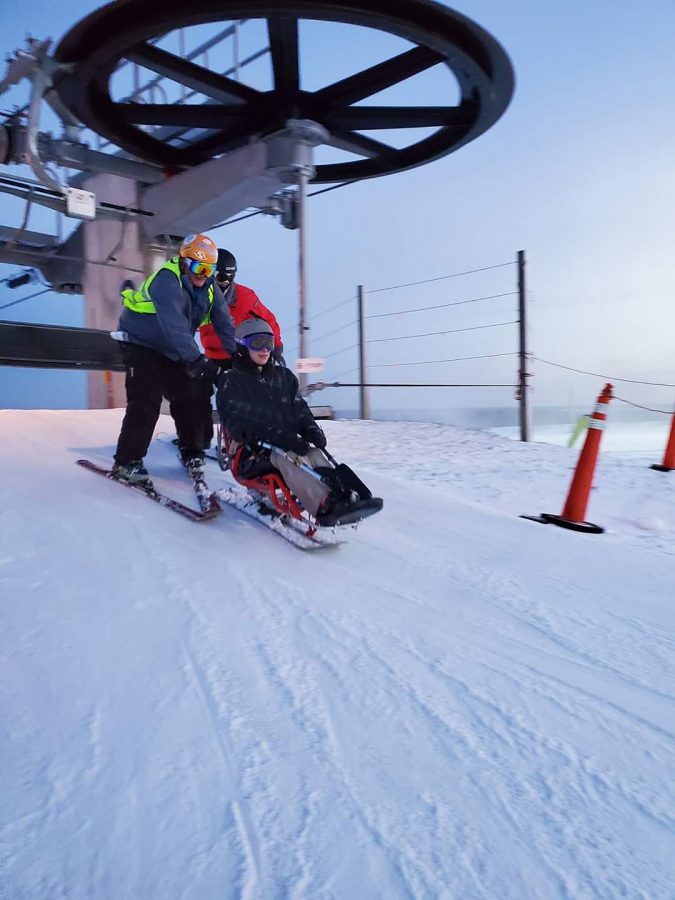Adaptive sports keep local athletes competitive
February 25, 2021
Adaptive athletes are no strangers to having to – well, adapt. People with a wide range of mobility problems participate in almost every sport available — just in a slightly different way.
You may think that these sports are not as competitive as the average sport, but if you saw these athletes preform you would quickly realize you are mistaken. The Great Lakes Adaptive Sports Association is a local organization that serves and supports adaptive athletes on their journey, from the beginning athlete to the elite. GLASA has trained countless individuals, who later have gone on to compete in the Paralympics. The association hosts events that bring in people from around the country. They train in sports ranging from adaptive archery, basketball, cycling, racing, CrossFit, horseback riding, Judo, powerlifting, water skiing, and even wheelchair rugby. Adaptive sports proves that people with mobility impairments can participate and excel in every sport that able bodied athletes can, with only minimal adaptations to equipment.
Adaptive sports have everything that regular sports offer. Sled hockey — which is a replica of hockey, but with the athletes sitting on sleds and propelling themselves with metal sticks on the ice, is a very popular and competitive sport. Goalball and Judo are competitive and specifically designed for people with visual impairments.
Even sports that you would not expect someone with a spinal cord injury, an amputee, or other mobility impairment would be able to participate in, are not crossed off the list for what these athletes can do. Extreme sports like snowboarding and skiing, and even a sport called WCMX (wheelchair motor cross) are available. People with mobility problems can do virtually anything — just with a little adaptation.
An important part of the sport is something called inclusiveness. That means that during the practices, events, and other related activities everybody is invited to play or participate — even if you have no impairments. This is important because everyone can experience what the sports are about. Everyone is welcome to hop in a sports wheelchair and give it a shot. It is a lot harder than it looks, and these athletes practice and train — rain or shine.
Even during the COVID outbreak, nothing has stopped these athletes from keeping moving. Athletes are participating in online training programs — tailored specifically to their sport of choice. Athletes can be taught workouts by Paralympians in these programs. Adaptive sports play a key role in someone’s life — especially for younger children and the newly injured. Right after my spinal cord injury, I found a lot of happiness and freedom after just going to a few events and basketball practices held by GLASA.
The Executive Director and Founder of the Great Lakes Adaptive Sports Association Cindy Housner said: “Sports are so much more important than just… sports. They increase people’s independence, self-esteem, socializing with others with disabilities, and helps them feel better and more confident with themselves.”
She also said that: “It can be especially hard being young or newly injured and it can be a very isolating experience — being the only disabled person in their communities and schools.”
That is why it is so powerful when all these athletes come together. GLASA serves northern Illinois and parts of Wisconsin and everyone is invited to come take part — either through volunteering with athletes, events, donations, or even just cheering on our local athletes. These are competitive sports and people can check out our local athletes and teams. For more information visit https://www.glasa.org

